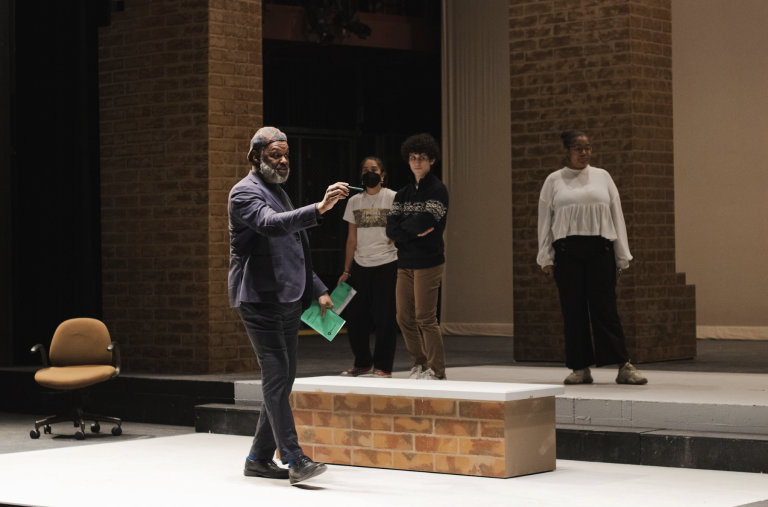ERIN GANNON ’19
TRIP SLAYMAKER ’18
A&E EDITORS
Everyone remembers the Great Recession of 2008, but not everyone can grasp the complexity of the housing market collapse that led to the biggest economic decline since the Great Depression. Adam McKay—director of Anchorman: The Legend of Ron Burgundy, Step Brothers, and Talladega Nights: The Ballad of Ricky Bobby—seeks to simplify the events leading up to and surrounding the downturn in his latest blockbuster, The Big Short.
The Academy Award winner for Best Adapted Screenplay—adapted from Michael Lewis’s 2010 non-fiction book, The Big Short: Inside the Doomsday Machine—follows the true story of Michael Burry (Christian Bale), an ex-neurologist who predicted the crash of the housing market nearly a year before the decline. Burry, a hedge fund manager, attempts to inform his clients of the impending economic apocalypse, but most people are anything but receptive, even mocking Bale’s character from time to time as they laugh at what appears to be a completely insane financial move. Burry realizes he can profit by creating a “credit default swap market,” and several major banks, believing that the housing market was inherently secure, bought into his idea.
Hearing about Burry’s plan, trader Jared Vennett (Ryan Gosling) decides to join Burry in betting against the housing market. Not long after, another hedge fund manager named Mark Baum (Steve Carrell) hears about Vennett’s investment and is quickly roped into joining. Carrell’s character is both obnoxious and calculating. It’s an impressive performance that falls just on the line of believability.
The small group of financial experts who read the signs grows to a few more when eager young investors hear of the about the credit default swaps, and enlist the help of retired securities trader Ben Rickert (Brad Pitt). Rickert becomes disgusted with the celebratory nature with which the investors go about joining the credit default swap market, knowing that the American economy is essentially doomed. Brad Pitt casts a long shadow but says very little in his Big Short role, working to turn down the volume of his celebrity.
The sense that The Big Short works to cultivate throughout its earlier scenes is comedic but foreboding. The group of outsiders can tell that something pretty destructive is on the horizon. Their nerves and stress over the immanent collapse only grows, and they soon realize that they must stay until the very end in order to collect their money when things turn south for everyone else.
Carrell, Gosling and Bale give career confirming performances which are not comedic in and of themselves, but dramatic and complex. The filmmaking that composes The Big Short is flashy and fast-paced. Its “dramatic recreation” scenes are often spliced liberally with images and shots from real-world television and newsreels that are presented as footnotes to the narrative. If there’s a downside to this casual style, it’s that it feels as though it is trying very hard to seem irreverent.
In all, the happy emotion, and a healthy number of celebrity cameos fill the movie and keep it interesting and light, and while the intensity of the movie’s carefully researched economic storytelling makes for a heavy topic, it never drags down the narrative.
The Big Short plays at Cinestudio fromMar. 28 to April 2.
Tuesday, January 14 2025
The Student Newspaper at Trinity College in Hartford, Connecticut




+ There are no comments
Add yours